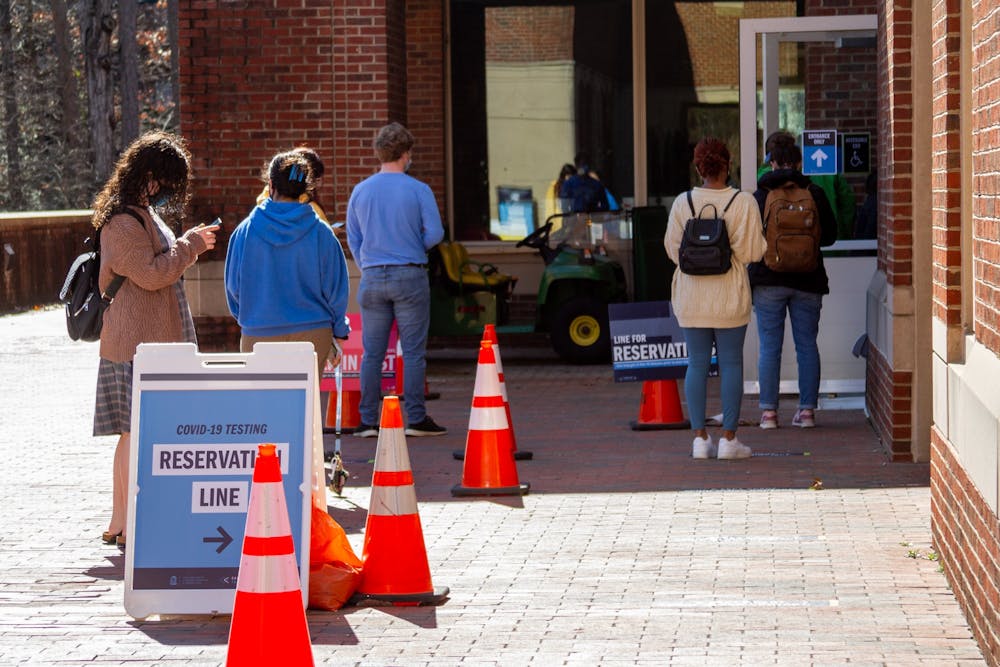Late last week, I went to the UNC asymptomatic COVID-19 testing site at the Student Union after I had an exposure.
As I walked up to show my barcode, I noticed I accidentally had scheduled an appointment for the following day. At the same time, however, I saw no one else in line in front of or behind me, and I saw nearly all the testing site tables were available.
I politely asked if I could walk in for testing, since no one else was waiting. In response, I was instructed to leave the testing site, and told that I would not be able to get a COVID-19 test that day.
As the University touts its COVID-19 positivity rates, I am reminded of what I saw that evening — an empty testing site. Beyond this image, the decision to move to appointment-only asymptomatic testing is emblematic of how UNC students, faculty and staff have to handle this pandemic: We are left to figure things out on our own.
While being turned away from the testing site was inconvenient, making appointments isn't difficult. However, the extra step required doesn’t seem to align with the increasing severity of the pandemic, as the omicron variant is a growing concern.
Additionally, finding appointments on a short-term basis can be challenging. As we have learned since the pandemic began, it doesn’t take long for COVID-19 to get out of hand. Access to testing is an important part of controlling spread.
In an interview with The Daily Tar Heel, Carolina Together Testing Program Director and Lead Physician Dr. Amir Barzin discussed the motivations for moving to appointment-only asymptomatic testing. The primary reasons were limited resources for testing and the potential for delays if labs were overrun with tests.
While I understand these concerns, limiting access to available tests for people who want or need them could have dangerous consequences. People aren’t getting tests just to get them – they are an essential part of managing how COVID-19 spreads in our community.
With the University encouraging individual departments, deans and professors to take public health decisions into their own hands, inconsistency is inevitable. Whether it’s navigating a hectic combination of in-person and remote classes or dealing with cancellations and COVID-19 exposures, the semester has already become overwhelming.




